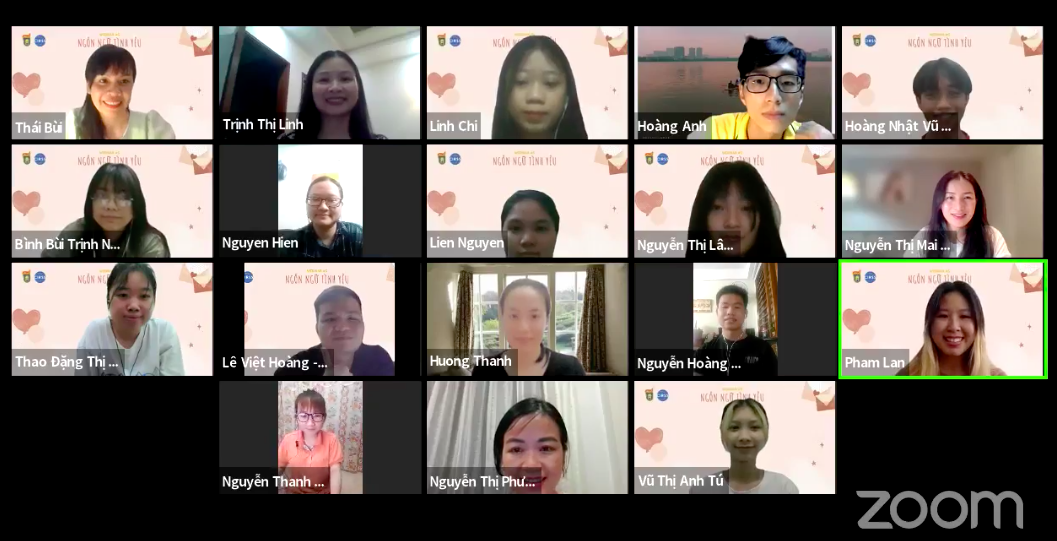With the participation of speaker Assoc. Prof. Dr. Trinh Thi Linh - Head of the Psychology Department, University of Social Sciences and Humanities, and the guidance of MC Assoc. Prof. Dr. Bui Thi Hong Thai, over 200 attendees were able to explore and discover issues surrounding love languages, and have their concerns and anxieties addressed. In particular, Assoc. Prof. Dr. Trinh Thi Linh highlighted the application of love languages in various relationships, going beyond just romantic relationships as commonly believed, offering attendees fresh perspectives.

Understanding the differences between individuals
Associate Professor Dr. Trinh Thi Linh argues that before exploring different types of love languages, we need to understand the differences between people. The differences between individuals are a combination of genetic characteristics and environmental factors. Differences between individuals are inevitable, so we need to accept, learn from, and respect them in order to coexist with those differences.
The differences between individuals form the basis for each person having different love languages. Gary Chapman once argued that people in relationships seem to have difficulty reading each other's language because each person is unique. This is also why his five love languages are so famous.
Gary Chapman's Five Love Languages
Love languages are not just words; they are also the ways each individual sends signals to others so they can understand the feelings they want to express. The following five love languages may coexist in each person, but one or two will be more prominent than others:
To discover your own love language, you can observe how you express affection to others, while also listening to your own needs in relationships.
How can we apply love languages in relationships?
The speaker suggested that, to make expressing affection within the family easier, we can ask ourselves how we are loved. From there, we can somewhat "read" our loved ones' love languages and see if we have been using their love languages effectively. Sometimes, you just need to tap into their love language. For example, your parents' love language is about helping; you don't necessarily have to do all the housework for them. Just a few small actions like washing vegetables or clearing dishes can make them feel much more loved.
Associate Professor Dr. Trinh Thi Linh also pointed out the necessity of using love languages in romantic relationships. In the early stages of a relationship, we sometimes have a somewhat "illusory" view of love, always seeing everything through rose-tinted glasses. But gradually, the relationship will progress to a stage of compromise – you begin to care about your own needs and demand more from your partner. At this point, learning each other's love languages is crucial for the two of you to continue building a happier and stronger relationship.
Moreover, love languages can be applied to other relationships (friends, colleagues, etc.): Do you know your best friend's or colleague's love language? If not, what will you do to find out? If you already know, what will you do in the future?...
Concluding her presentation, Associate Professor Dr. Trinh Thi Linh offered the audience some important points to consider when using love languages: Love languages are only a supporting tool, not the sole solution for a happy relationship; a person may use one love language but expect to receive a different one; love languages can change over time; do not apply a single love language to every relationship.
Through the relatable, easy-to-understand yet profound insights shared by Assoc. Prof. Dr. Trinh Thi Linh, attendees of Webinar #5 had the opportunity to better understand their own love languages and those of the people around them, thereby building and improving their relationships.
The webinar series on socio-psychological support for the community, organized by the Center for Interdisciplinary Studies in Social Sciences (CIRSS), has reached its final sessions. Going forward, CIRSS plans to continue planning more webinars with engaging topics to achieve its goal of bringing more positive value to the community.

Author:Reishi
Newer news
Older news